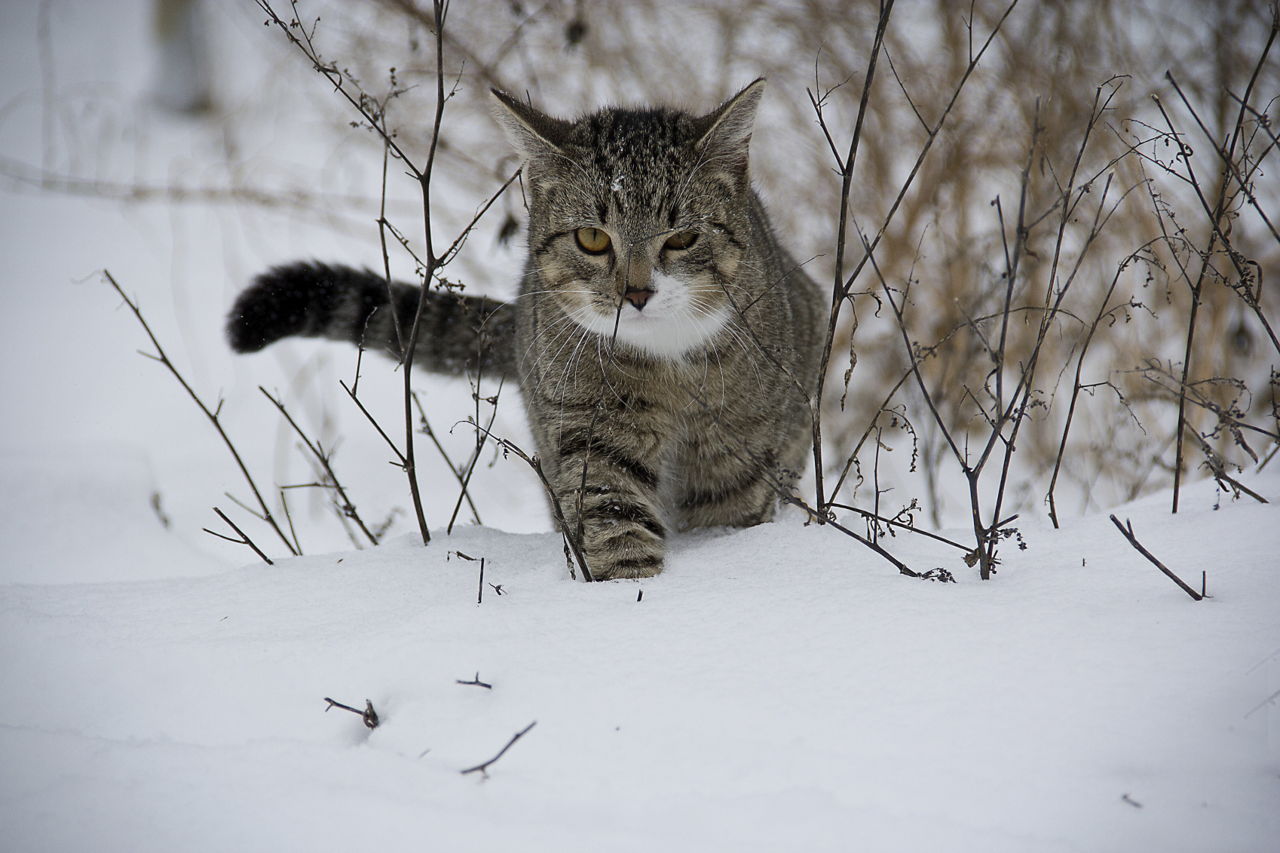
Finding it difficult to make sense of your cat’s behavior concerning urination in the house? You have come to the right place.
When Peppers was the newest addition to the family, he gave us a hard time. In spite of being litter trained, he continued to pee in the house. I had a hard time convincing my mom that it will stop, and finally, Peppers did overcome this problem. He hasn’t had an accident ever since (touch wood).
Cat Behavior Problems ~ Urinating
You may be a staunch cat lover, but there comes a point where you have to draw a line. Some things are just not acceptable, not even if they are done by your cuddly pet … urinating in the house is one of them. It is quite a daunting task to clean up the mess―especially to get rid of the persistent odor and stains on rugs. As for the cause of such behavior, it can either be psychological or physiological (i.e., some underlying health problem). At times, for instance, cats urinate in the house to mark their territory.
Urinating in the House
Male and female cats, both have the tendency to spray their urine around the house. If your cat is peeing on vertical surfaces around the house like windows, doors, walls, curtains, dustbins, shopping bags, etc., it indicates spraying. The cat is using its urine to mark its territory for it to remember and―more importantly―other cats to know that this area belongs to it. This cat behavior usually occurs when the cat reaches sexual maturity. High level of estrogen compels female cats to spray and attract tom cats for mating. The male cat, on the other hand, sprays and lets other cats know that they are in his area.
Also, if you have more than one cat in the house, urinating in house will be a common observation. Even if you bring home a new baby or rearrange the furniture, the cat may feel like spraying around for comfort. A cat tends to leave its scent marks on furniture around the house. Any rearrangement can affect the placement of his markings. In order to bring order to chaos in his world, the cat may begin urinating in house.
Urinating on Bed
At times, you will realize that the cat urinates on bed, freshly done laundry, as well as shoes. This is most likely to be due to stress the cat is undergoing. A cat can feel stressed due to presence of new people in the house, new objects placed around the house, issues with other pets, or litter box problems. It may so happen that the cat, for no reason, considers the bed its litter box.
An anxious cat may begin to search for places that have strong scents from you. The bed, laundry, and shoes all have your scents. The cat will pee on these objects to strengthen its bond with you. It is its way of sending across a message to other cats, This human belongs to me. Keep you paws off him/her.
Another reason for this repetitive behavior is the strong scent of urine that lingers in the bed. This may confuse the cat further and attract him to the same place to urinate―again and again. Therefore, it is very important you clean the place thoroughly and leave no scent of urine lingering around.
Cat Behavior ~ Urinating Outside Litter Box
If you cat is urinating outside litter box, it may indicate a health problem. A cat with urinary tract problems that suffers from painful urination, begins to associate its pain with the litter box and prefers peeing outside the box. Other health problems, like kidney disorders, liver problems, intestinal parasites, gastrointestinal problems, thyroid diseases, etc., may cause an urgency in passing urine. This urge to pass urine or even defecate may be reason for not using the litter box in some cats.
Sometimes, older cats affected by arthritis, nervous system disorder, or muscular disorder, may find it difficult to use the litter box. As it can no longer jump in and out of the litter box, it begins to urinate elsewhere. Therefore, you should get your cat checked by a vet to eliminate any of the pressing health issues.
The other reason for urinating outside litter box can include aversion to litter box. Cats are fussy about cleanliness. If you have not cleaned up its litter box or its litter box is smelly, the cat may refuse to enter the litter box. Many times, cats do not like the litter box brought for them. Either the fragrance or the texture of the granules under their paws deters the cat from sitting in his litter box for urination.
Similarly, a cat loves his privacy while he is answering nature’s call. If its litter box is placed in an area wherein it is constantly under watch or the cat is not comfortable in the particular area, he may not use the litter box.
If your cat urinates outside the litter box, immediately clean the area with a strong detergent or enzyme cleaner. Place plastic or foil over the area. This will make it unpleasant for the cat to walk in this area. If you think your cat is scent marking territories, get the cat neutered or sprayed. If your cat is already neutered, check for health problems. Sometimes, the cat does this out of separation anxiety or uses this as a way to get your attention.


